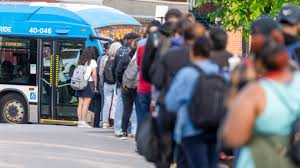
Introduction
The ongoing STM strike in Montreal is a significant development that has garnered attention from both commuters and city officials. With public transit being a vital component for many residents in the region, understanding the implications of this strike is crucial. As negotiations between the Syndicat des travailleurs et travailleuses de l’STM (STTSTM) and the Société de transport de Montréal (STM) continue, the outcomes will not only affect transit services but also the daily routines of countless individuals relying on these services.
Details of the STM Strike
The STM strike began on October 16, 2023, after workers expressed their dissatisfaction with proposed wage increases and working conditions. The transit union is seeking a more substantial wage adjustment and better benefits to match the rising cost of living. The STM, however, has initiated a series of contingency plans to manage operations amid the workforce disruption, including increased emphasis on rideshare and bike-sharing alternatives.
Reports indicate significant decreases in bus and metro services, forcing many commuters to seek alternate transportation methods. Regular STM users have voiced frustration due to crowded buses and longer wait times for available public transit options. City officials are currently monitoring the situation and encouraging residents to consider carpooling or using cycling as alternatives during the strike.
Community Response
The community’s response to the STM strike has been mixed. While many transit users empathize with the workers’ plight, others are concerned about the inconvenience caused by reduced services. Some local businesses have also expressed worries about decreased foot traffic due to the strike. To gain further insight, a public meeting featuring union representatives is scheduled for October 25, where members of the community can voice their concerns and gain better clarity on the negotiation status.
Conclusion and Future Forecast
The actions taken by the STM and the union in the coming weeks will be critical in determining whether the strike can be resolved amicably or if it will extend further. Experts predict that prolonged disruptions could lead to long-lasting changes in commuter habits, with some individuals permanently shifting to alternative modes of transport. As the situation evolves, it is essential for commuters to stay informed through STM’s official channels and local news outlets. The outcome of the STM strike will not just impact transit services but could ultimately influence labor relations across the public sector in Quebec.



